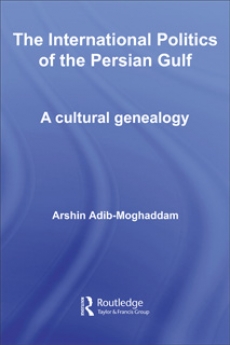| Éditeur : Routledge | Date & Lieu : 2006, Oxford |
| Préface : | Pages : 188 |
| Traduction : | ISBN : 978-0-415-38559-6 |
| Langue : Anglais | Format : 155x230 mm |
| Thème : Politique |
|
Présentation
|
Table des Matières | Introduction | Identité | ||
 The International Politics of the Persian Gulf: A cultural genealogy In the past few years there has emerged a new and salutary interest in the critical study of culture, an interest that has also ameliorated the study of international politics. Yet despite a recent growth of critical theoretical work in both disciplines, scholars of International Relations and Middle Eastern studies remain generally uncomfortable reverting to cultural concepts to understand the causes of international conflict, particularly with regard to the area under focus here. As a consequence, the idea that identity, norms, institutions and other cultural artefacts shape international politics in the Persian Gulf has remained marginalised. | |||||
| Table des Matières | ||||
Contents Acknowledgements / ix | ||||